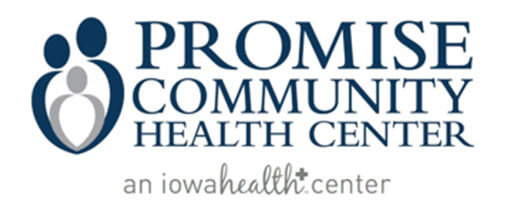
Anxiety is an emotion characterized by feelings of tension, worried thoughts and physical changes like increased blood pressure. It begins with a simple issue that shouldn’t be a big deal, but anxiety creates a fixation on the issue, making it grow out of proportion. Anxiety disorders can take many shapes, like social anxiety, Obsessive Compulsive Disorder, or Post Traumatic Stress Disorder.
Anxiety affects everyone differently. Some common symptoms of anxiety disorders include:
- Difficulty focusing
- Trouble sleeping
- Intrusive, unwanted thoughts
- Feeling exhausted, even after a full night’s sleep
- Muscle pain or soreness
- Going out of your way to avoid situations that create anxiety
Life Disruptions
Anxiety can cause numerous problems in your life. Trouble focusing makes it difficult to perform well at work or school. Many people alter their lives to prevent encountering whatever triggers their anxiety by isolating themselves or avoiding public spaces.
Panic Attacks
People with severe anxiety disorders often experience panic attacks. Common symptoms of panic attacks include: difficulty breathing, a sense of impending doom, physical tension, and detachment from surroundings.


Trauma
Some people develop anxiety disorders as a means to protect themselves. Trauma can be caused by anything from military service, to a car accident, to severe weather. But when anxiety from these events is felt even when the threat isn’t present, the trauma has gotten out of control.
Treatment
Social anxiety, Obsessive Compulsive Disorder, and PTSD are all treatable. Many people benefit from a combination of treatment options like therapy, medication, and lifestyle changes. You can control your anxiety. It doesn’t have to control you!
If you suffer from anxiety, take this mental health screening and find out if you should pursue treatment.
Promise Behavioral Health Team
We are committed to walking alongside our patients during difficult times in their lives. Promise provides a comfortable, safe, confidential space for patients to share their concerns. We also want to offer hope and allow patients to recognize they are capable of making positive changes in their lives. It takes courage to share with someone about sensitive areas of life, and we honor that courage. When patients share and unburden their hearts, it will ultimately empower them to create more wholeness and a higher quality of life.
Promise Community Health Center Mental Health Team
Promise Community Health Center offers a range of mental health services. Our mental health team collaborates with our patients to assess current coping skills, address emotional needs and work through lifelong patterns. These services are available on-site and by Telehealth by our mental health department.
Promise Community Health Center is proud to provide bilingual mental health therapy in northwest Iowa. Our bilingual therapist can provide mental health services in both English and Spanish. Promise also provides our patients with a mental health interpreter who is qualified to interpret into Spanish for Spanish speaking mental health patients. Our goal is to make sure that our patients are able to do mental health therapy in the language they feel most comfortable speaking. We are happy to have bilingual mental health therapists and counselors and a mental health interpreter to provide accessible and affordable bilingual therapy in Northwest Iowa.
What can Promise Community Health Center in Sioux Center mental health therapists help with:
- Developing & exploring effective coping skills
- Addressing emotional needs
- Working through lifelong patterns
- Working through difficult life situations
- Developing better communication skills
- and so much more!
Our mental health therapists and counselors in Sioux Center provide many therapies including:
- Individual Therapy
- Child Therapy
- Adolescent Therapy
- Couples Therapy
- Women’s Issues Therapy
- Online Therapy
- Family Therapy
Our Promise mental health therapists are specialized and trained in many different therapies including:
- Anxiety Therapy
- Trauma Therapy
- A.R.T.- Accelerated Response Therapy
- EMDR- Eye Movement Desensitization and Reprocessing Therapy
- Art Therapy
- DBT- Dialectical Behavior Therapy
- Generational Family Therapy
- Complex Trauma Therapy
- CBT- Cognitive Behavioral Therapy
- Trauma Services Therapy
- Post-Traumatic Stress Disorder Therapy
Our Sioux Center therapists and counselors are offering services to the following in our northwest Iowa communities:
- Children- Ages 8 and older
- Adolescents
- Adults
- Couples
- Families
Some of our mental health therapy patients come from Sioux Center, Rock Valley, Inwood, and Rock Rapids. We also provide mental health therapy and counseling for patients from Boyden, Hull, Sheldon, George, Sibley, and Spencer. Patients needing mental health therapy or counseling also come from Le Mars, Orange City, Alton, Hawarden, and Hudson. Promise is proud to provide mental health therapy and counseling to northwest Iowa.

